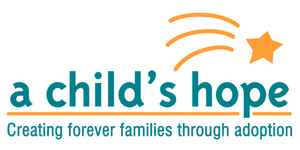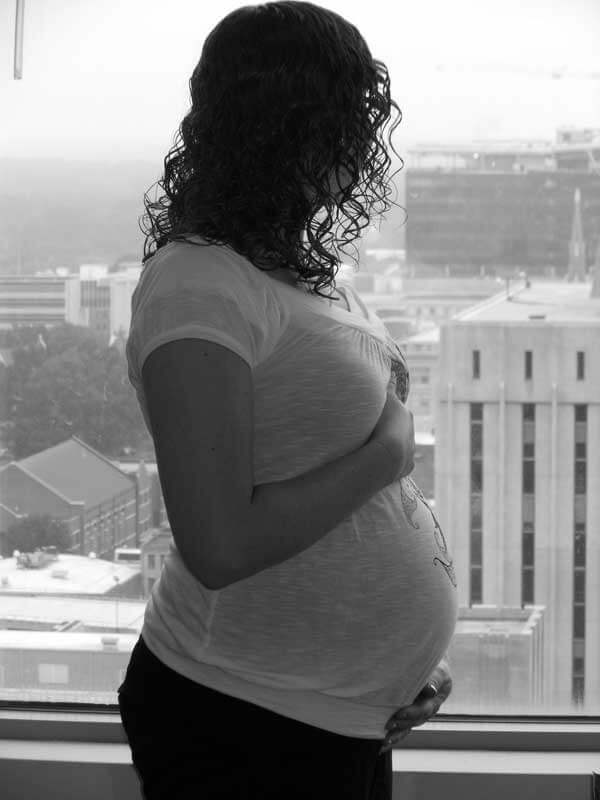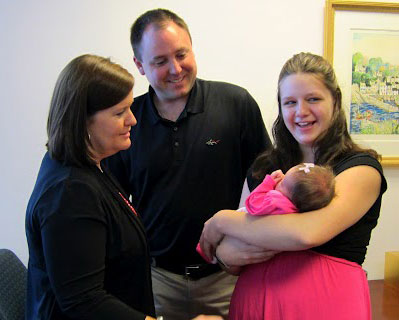
It’s no surprise that raising a child can be expensive. A recent estimate puts the price tag $245,340. But what may be surprising is the financial cost women incur even before the baby is born, during pregnancy.
To have a healthy pregnancy, it is important to anticipate these costs, and learn where to go for financial help if needed.
Initial Medical Costs
Regular pre-natal doctor visits are essential for the wellbeing of you and your baby. Your doctor is likely to prescribe a prenatal vitamin that contains folic acid, which gives your body the additional nutrients necessary to help the baby develop normally, and that can help prevent birth defects. Your doctor may give additional prescriptions if you are anemic or have other health conditions to be addressed.
During the pregnancy, you will likely have certain screenings and tests to ensure the pregnancy is progressing as it should, without taking too great a toll on your own health. If you have complications during the pregnancy, or a pre-existing health issue, your doctor may require additional testing to monitor the situation.
WebMD, a health news site, estimates the cost of prenatal care in an uncomplicated pregnancy to range from $0 – $2000, and the cost of prenatal vitamins as $15 per month.
Where to get financial help: You may be eligible for help through Medicaid, a governmental program for low-income individuals.
Maternity Clothes
Some women make it through their pregnancy wearing loose shirts and drawstring pants to accommodate the baby bump, but others may need traditional maternity clothes. If you are working through the pregnancy, your needs will be determined by your work dress code.
Many women get through the pregnancy without spending much on clothes by combing through their own wardrobe for comfortable clothes, borrowing from friends and family, and looking for good finds, including sale items in the men’s department or clothes from local thrift or resale shops.
Food
It’s not fair that healthy food is often more expensive than junk food. Making nutritious choices for meals gives your baby the best chance for a great start in life, but when you’re on a tight budget, it may be difficult to balance to maintain. Consider preparing foods yourself, instead of eating out. Enjoy frozen fruits and vegetables, which have similar nutritional value as fresh produce, but are often less expensive. Build meals around beans, which are inexpensive and great forms of protein. Shop sale items, especially for lean meats. The U.S. Department of Agriculture’s (USDA) Choose My Plate offers more tips on healthy eating, at low cost.
Where to get help: If you need food, search foodpantries.org. there are several locations across Raleigh
Another program in North Carolina, known as Women, Infants and Children (WIC) provides healthy foods for pregnant women who live in the state. Click on the WIC website or call the Department of Health and Human Services’ Customer Service Center at 1-800-662-7030 (TTY: 1-877-452-2514).
Labor and Delivery
Hospital labor and delivery costs can range from no charge to $30,000 for a vaginal delivery to $50,000 for a C-section. Some insurances may cover some or all of the cost, but the remaining portion can still be huge. If you or the baby has a complication, the costs will only increase.
But this is not a category to bargain hunt. Taking good care of yourself and the baby during pregnancy is a good way to decrease your risk of a complicated delivery.
Where to get financial help: You may be eligible for help through Medicaid, a governmental program for low-income applicants.
Emergency Savings for Recovery
After delivery, your body needs time to physically recover. Doctors typically suggest taking six weeks of medical leave, although some studies say the body needs a full year. If you have worked through the pregnancy, your recovery time may or may not be covered by sick days or vacation. Be sure to anticipate this loss of income by saving in advance.
Having a baby is a significant financial responsibility—one that starts even before the baby is born. If finances are a consideration, explore the resources mentioned above for help.
If you are considering placing your child for adoption, keep in mind that many of the pregnancy costs may be taken care of by the adoptive family. For more information on that possibility, please contact A Child’s Hope, 1-877-890-4673, where our compassionate counselors can provide information as you explore your options.

 The second trimester of pregnancy often feels like the best. You may no longer get morning sickness, and you may now enjoy a hearty appetite along with a resurgence of energy. You also are starting to see visible changes in your body as the baby grows, but you don’t yet have some of the late stage discomforts.
The second trimester of pregnancy often feels like the best. You may no longer get morning sickness, and you may now enjoy a hearty appetite along with a resurgence of energy. You also are starting to see visible changes in your body as the baby grows, but you don’t yet have some of the late stage discomforts.


